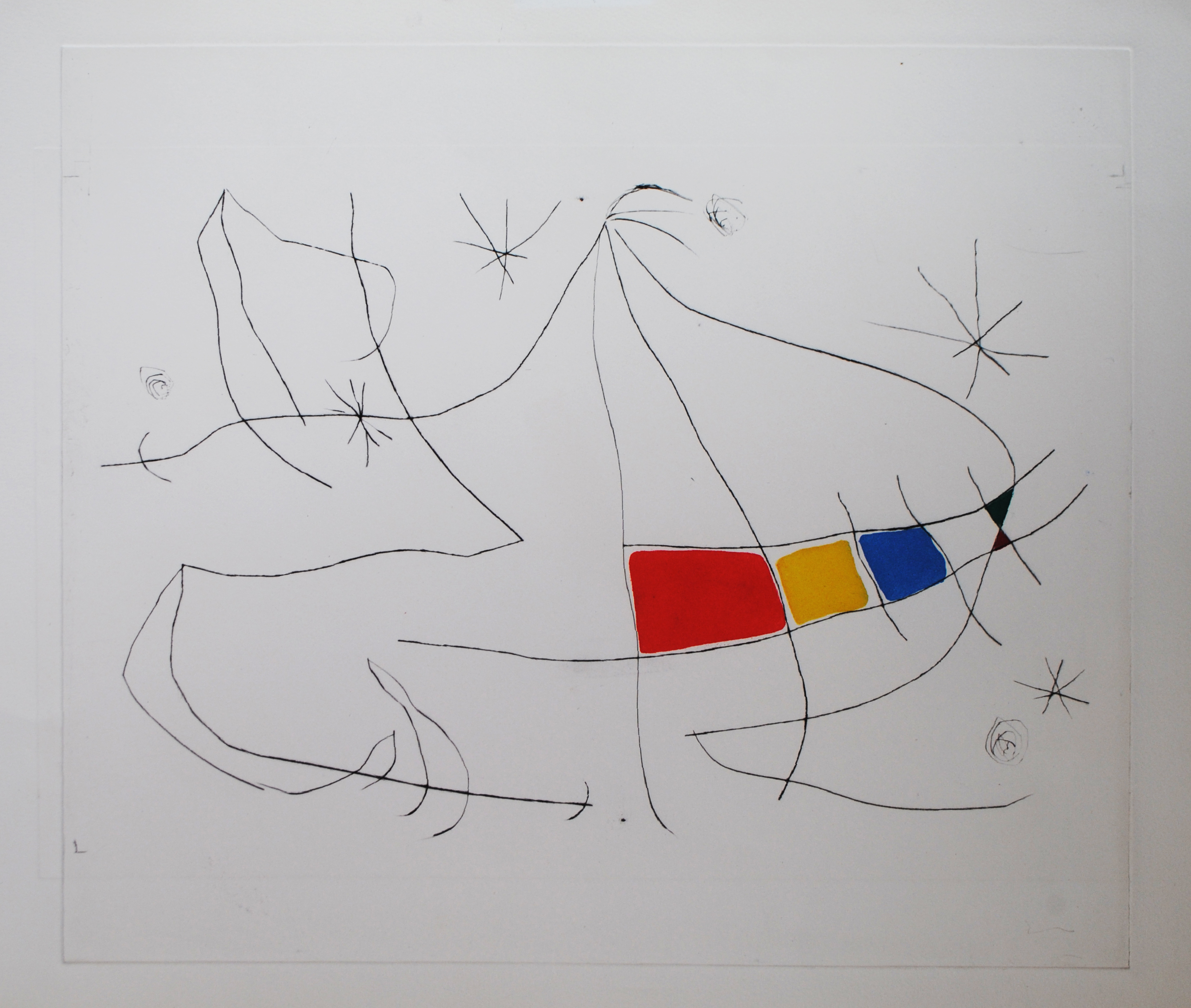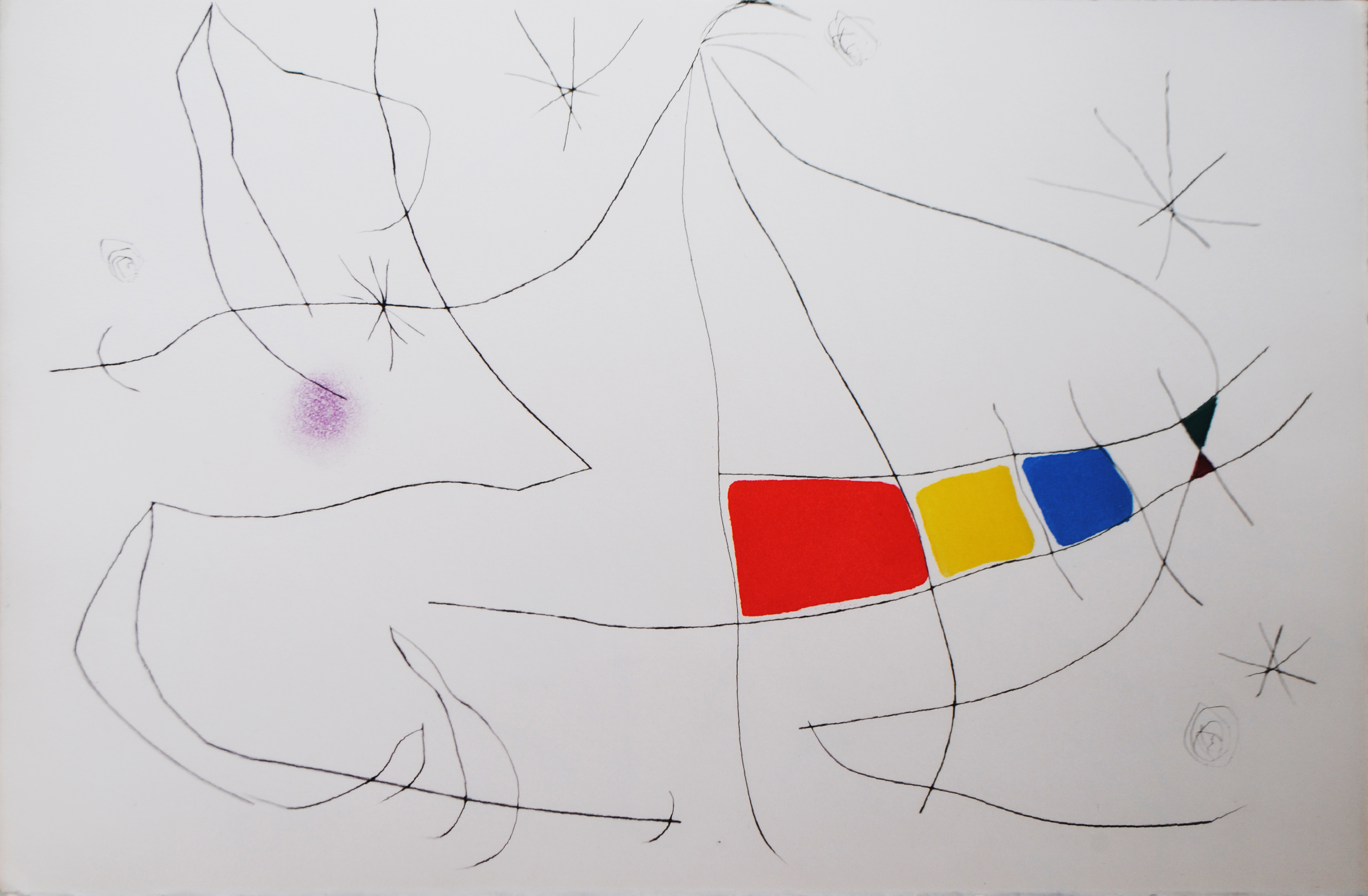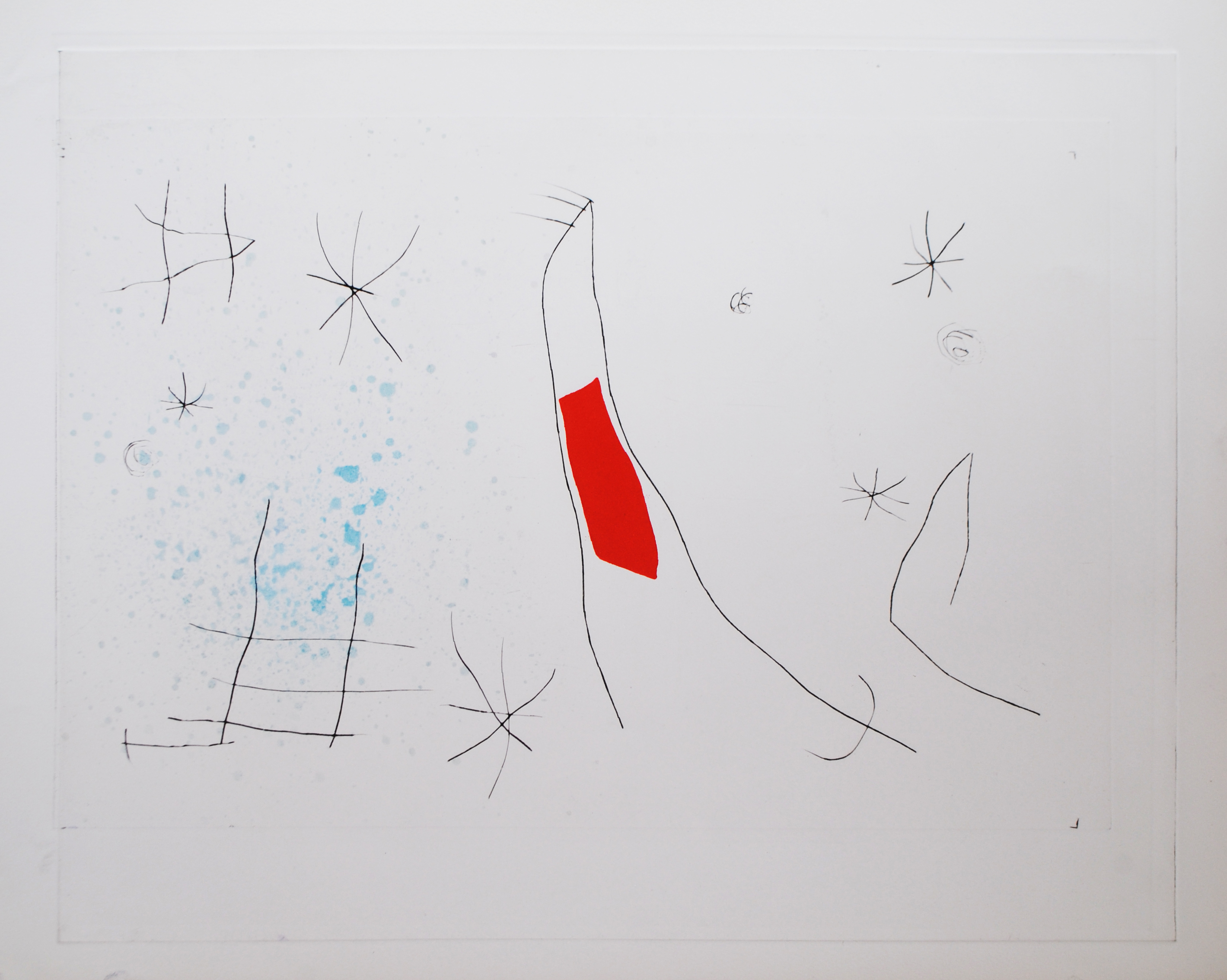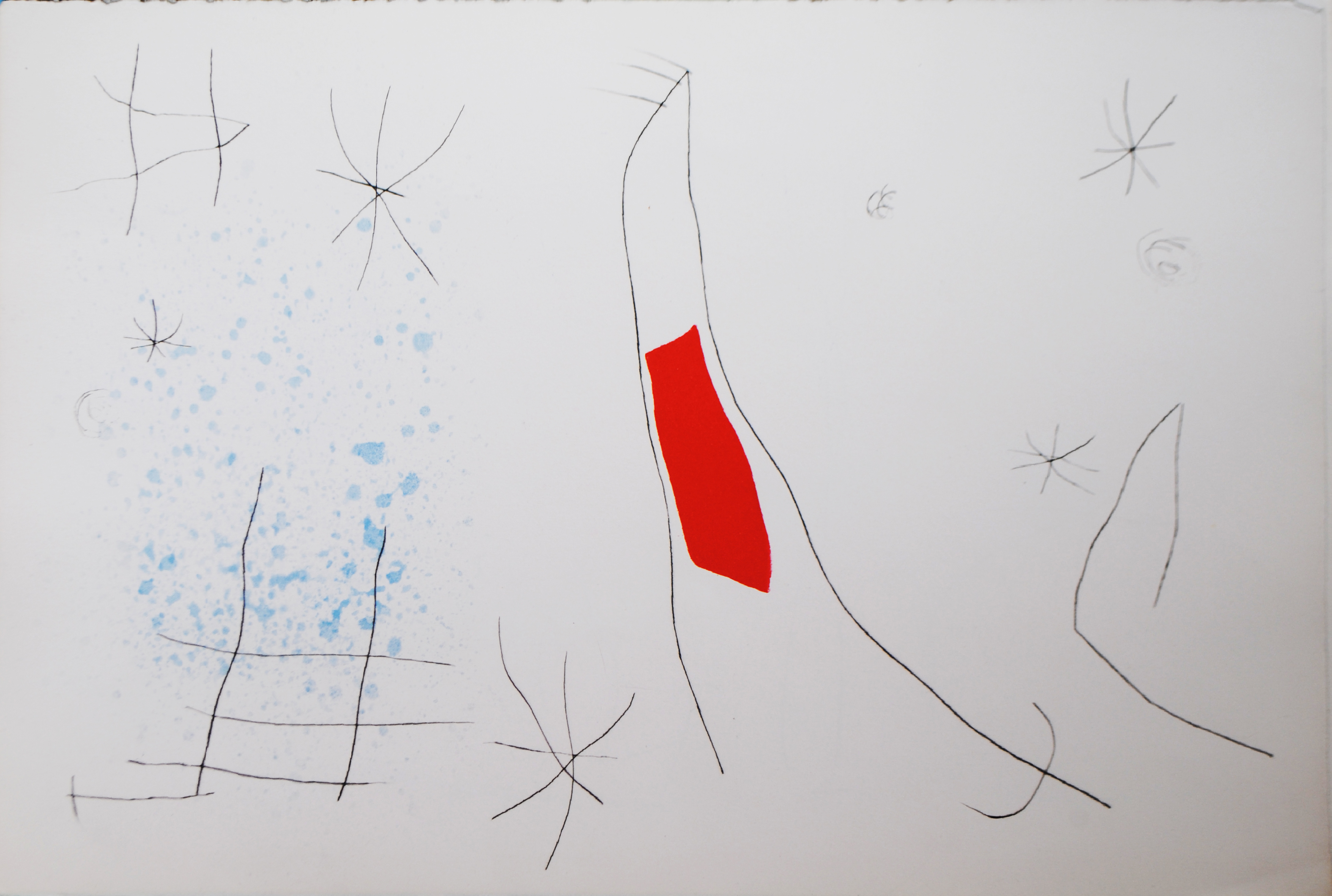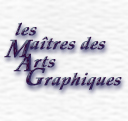
Joan Miró
Joan Miró
|
|
|
|
|
|
|
|
|
|
|
L'Issue Dérobée
[The Hidden Issue]
Dupin 691, D692 with D688 (verso), see Cramer 187
drypoint
and aquatint in colors with additional etching, 1974, on heavy Arches
wove paper, two trial proofs
with variants, and wide though somewhat uneven margins (some slight
scuffing and inky fingerprints in the margins), along with two
BAT (Bon à tirer) proofs,
printed to the sheet edges (see below), before the Maeght edition
of 200
Jacques Dupin (1927-2012) was a renowned French poet (who won the Grand Prix national de Poésie in 1988) and art critic, as well as an intimate friend of Miró's. He is furthermore the author of the catalogue raisonné of Miró's œuvre: prints, drawings, and paintings
The
1974 Maeght edition comprised 11 prints for Dupin's
poem, L'Issue Dérobée.
(see http://www.wikipoemes.com/poemes/jacques-dupin/lissue-derobee.php)
Miró's artistic commitment to poetry was deep and long-standing: he once told Jacques
Dupin, "I make no distinction between poetry and painting"* and even
executed painting-poems. Indeed, Miró
first came to printmaking through poetry, to illustrate the works. ** (One say say that his intent was rather to visually accompany them...)
(There is a separate catalogue raisonné for them: Patrick Cramer, Joan Miró: The Illustrated Books, Geneva, 1989).
The two proof impressions (D691 and D692) with margins (and deckle edges, left and right) are exceptionally rare, as each impression for L'Issue Dérobée
was printed from multiple plates (the different platemarks are quite
visible here), and the pages for the published edition were
subsequently cut down radically, well within the platemarks, to the
size of the compositions (as in the BAT impressions shown here).
For
these BAT impressions (which correspond to the dimensions of the
published edition), we thus only give dimensions for the sheet size, as
the platemarks are no longer visible.
| D691 P. 436 x 500 mm. | S. 500x0655 mm. |
| D691 BAT |
S. 320x510 mm. |
|
D692 P. 436 x 547 mm. |
S. 500x660 mm. |
| D692 BAT | S. 330x502 mm. |
These working proof impressions show a number of variants:
D691 Both impresssions shown here were printed without the blue drypoint sketches (verso), and the BAT impression shows an additional starburst effect in mauve, center left.
D692 Both impressions were printed with with the same blue drypoint sketch (D688, verso), as in the edition, but without the cloudlike embossing in relief that is prominent in the edition. ***
Provenance: Monsieur G., Miró's printer in the Maeght workshop
